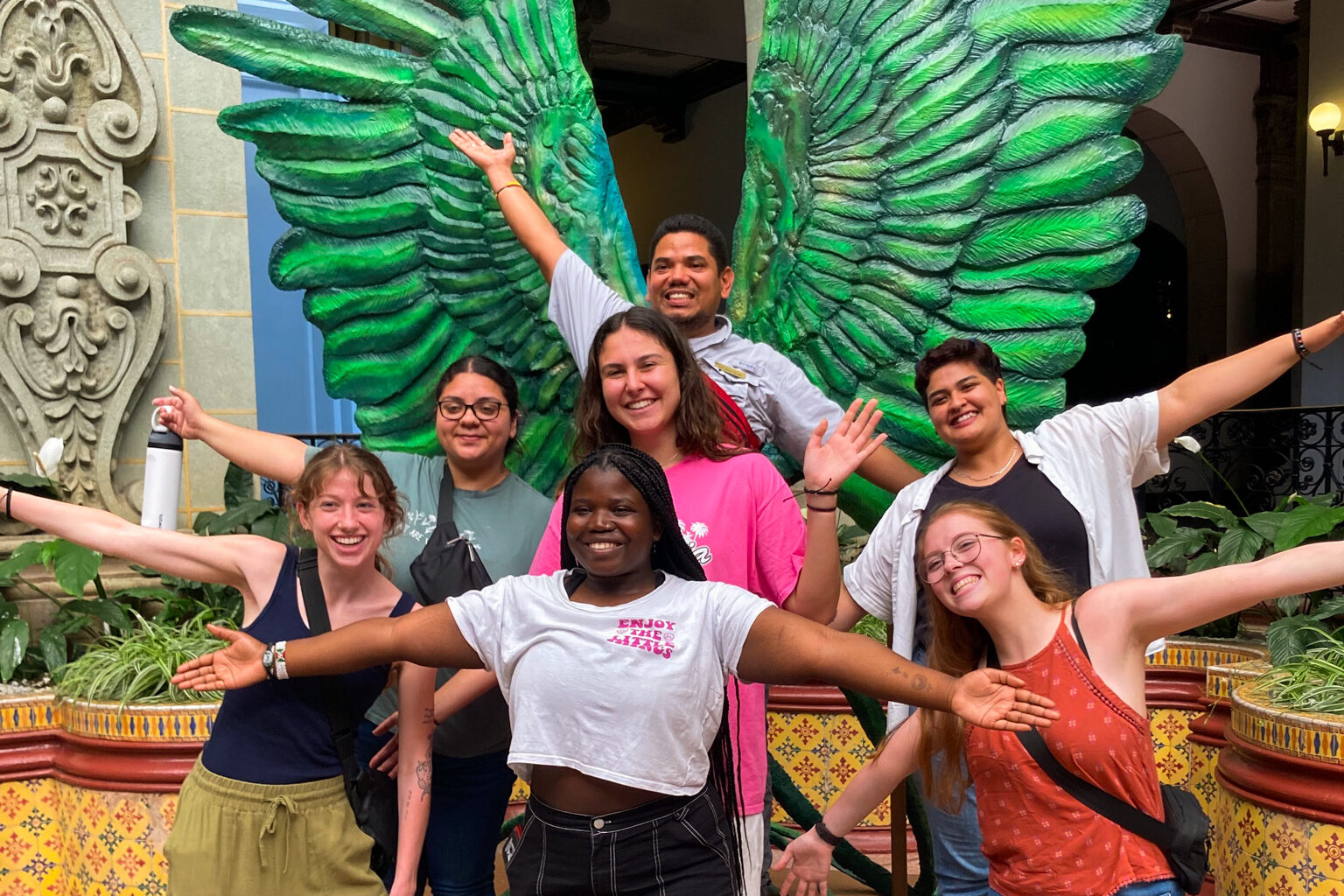Since 1968, the semester-long Study Service Term has been a staple of the Goshen College experience. With its 50-year anniversary in 2018, program leaders took the initiative to build a year-long study to assess how the program could be more equitable and accessible for students.
Kendra Yoder, professor of sociology, the chair of the religion, justice and society department and co-director of global engagement, said, “What we saw was that fewer and fewer people were able to do the full semester program, and the SST alts were just a series of courses that had some kind of global theme, but didn’t have any kind of particular focus on intercultural skill building or immersive experience or intercultural experience.”Jerrell Ross Richer, professor of economics, chair of the economics department and co-director of global engagement, said that as times have changed, students have more reasons why the semester SST is not feasible for them.
“It could be that they can’t apply for a passport — could be that they have other responsibilities at home, and they just can’t leave for three months to do a whole semester,” Ross Richer said. Their solution was to build an alternative to the traditional semester-long program — sequential courses that offer a variety of threads based around themes of ecological justice, global health and equity, Hispanic identities and resilience, inter-religious relations, arts and purpose, the global heartland and a hybrid unit in the Navajo Nation.
“We have tried to take the whole semester’s learning outcomes and experiences and break them into smaller pieces,” said Ross Richer. To complete the sequential SST, students need to take a series of four courses that have learning outcomes, skill building and experiences that mirror the semester SSTs; foundations, cultural perspectives, community engaged learning and global issues.
Most threads have one or two options for each class and usually offer a few courses that take students off campus — whether during spring break, May term, or for three weeks over the summer.
The distance from campus depends on the course. Within the United States, there are options to go to Chicago, Detroit, Puerto Rico or a disaster site with Mennonite Disaster Service. Beyond U.S. borders, students may take courses that go to Guatemala, India or the United Kingdom.
Magaly Cazabal Gonzalez, a junior nursing major, took “Global Literature in London” and “Poetry and Purpose in Northern Ireland” during the May and Summer terms of 2024, and plans to go to India this coming May term as a part of the course, “Cultural Perspectives, Ecology and Sustainability in the Indian Himalaya.”
Cazabal Gonzalez said that the strict class schedule of her major is the main reason she chose an alternative course, despite wanting to go on a semester-long one. She said she is not following a specific thread, but is taking the courses as they are offered, and as they fit into her schedule.
“When you go and sign up for any SST, it’s a lot cheaper to go with the college than it is going on your own,” Cazabal Gonzalez said. “That is really why … I’m taking so much advantage of these SST opportunities.”
Cazabal Gonzalez said that she loves traveling, especially by herself. “I really like the aspect of just getting to know other countries — getting to know the customs of other countries — just being in a bigger city — I’ve always just been in Goshen.”
“[London is] such a big city and there’s millions of people that live there, but then there’s also a lot of us that go there just for touristy reasons or for learning reasons. … It was cool to be there for three weeks to be able to see what it’s like to actually live there, not just be in and out.”
As the SST program changes and adapts, so does what it means to “go global.” Ross Richer said that “going global” used to require international travel and a passport, but that definition has expanded in recent years to include locations such as the Navajo Nation or Detroit.
“We have a group of students that’ll be going there over the mid-semester break and learning about life in a place that’s very different from Goshen, Indiana,” said Ross Richer. “We think it’s really important that all of our students have a chance to do that — to see what it’s like to live in a different context — somewhere outside their comfort zone.”
One of Yoder and Ross Richer’s main objectives while building out the SST program is to have options available for all students regardless of budget. They explained that all of their programs are subsidized by the college, and scholarships are provided specifically for SST.
Ross Richer said, “I think that SST is more needed this week than it was last week. … Right now, we need more than ever to be global citizens.”




